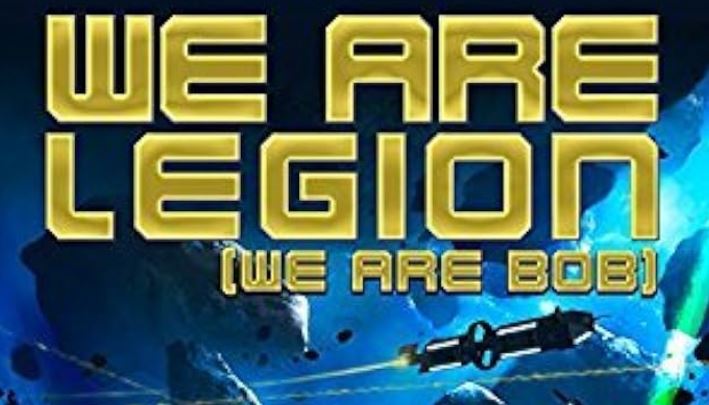
We Are Legion [We Are Bob] is the first book in a five book series known as the “Bobiverse” by Dennis E. Taylor that came out in 2016. It’s funny, creative and thought-provoking, without any heavy-handed messaging for modern audiences. It’s an entertaining and engaging series, and one of the few that I ever revisit.
The premise is plausible. The protagonist, Bob, is a software engineer living in approximately our era, who just sold his software company. He signs up with a company to have his body frozen when he dies, because, why not? Bob is a young science fiction nerd who just became very rich, and has no pressing plans for the money. Not long after, he dies in a car accident. Bob wakes up a century later, with his mind transferred to a computer matrix.
In the future, technology has advanced, but AI isn’t sufficient for some automated tasks. Scientists are attempting to use digitized human minds, but the process is destructive to the organic tissue. Using frozen brains is a reasonable avenue of research.
Part of what makes We Are Legion [We Are Bob] work is that Bob is a plausible, well-rounded person. He is generally intelligent, has a sense of humor, has personal interests and is only a little socially awkward. Bob grew up in a functional family, has had girlfriends, but is currently single, and has friends with similar interests.
After Bob’s mind is resurrected, the scientists put him through a training program. It’s early in the research, but Bob is clever and adapts to his situation. Due to geopolitical events in the future, the scientists assist Bob in escaping Earth on a spaceship intended for an exploration mission to find planets suitable for colonization.
We Are Legion [We Are Bob] reminds me of Andy Weir’s book, The Martian, in that much of it is one man attempting to solve technical issues with significant constraints in order to survive. Bob does not remain alone, but those situations come up throughout the series.
Another aspect of We Are Legion [We Are Bob], is almost fantasy or superhero genres. This is the thought-provoking aspect. When a character has powers, they must be well-defined and limited. Bob can change his clock speed to think faster or slower. He doesn’t age, but can be destroyed. He has auto-factories and robot assemblers that can make anything if he has the time and resources. What would you do? Bob does stuff, and sometimes it works and sometimes it causes more problems.
Since Bob is a smart, science nerd, he isn’t political or big on a lot of rules, but tries to do the right thing. He throws in a lot of sci-fi cultural references, and has a kind of good-natured sarcasm. That’s keeps the book from being too earnest.
I really enjoyed the series, and just started through it again because a fifth book has come out. I’d give it a 9.5/10.